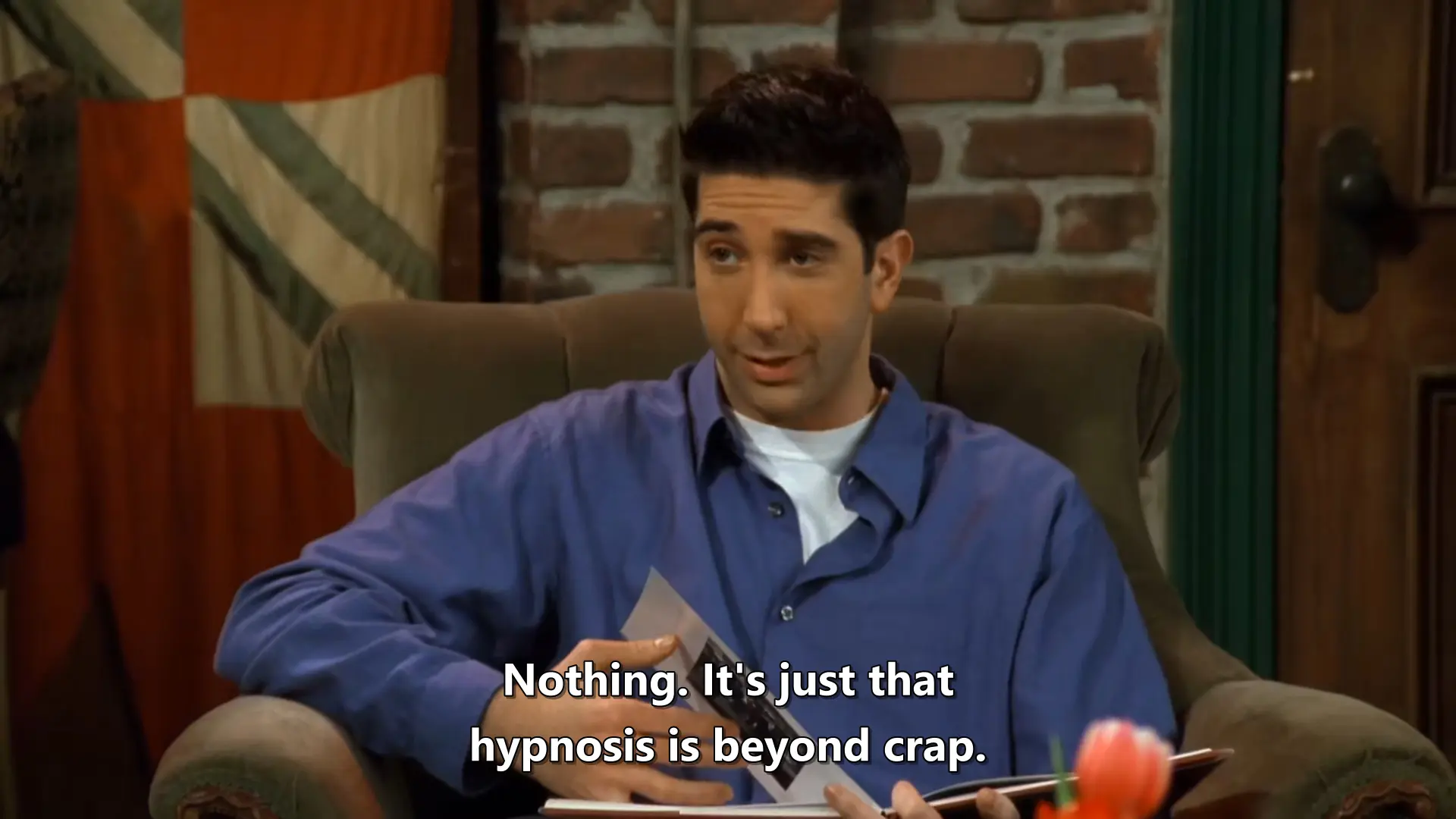“I have an appointment with three other therapists after you.”
That’s one of the first things I said in the first session with my current therapist. The last time I’d gone to therapy was a disaster, so the perfectionist in me had agreed to start therapy again only if I made sure it works %100 this time! As a result, I’d carefully chosen four therapists and booked times with all of them.
Fortunately, this first one turned out to be quite a professional. She didn’t get into my “who’s better” game, she didn’t try to stop me from going to the other therapists, and she gave me an extremely insightful question that very session. We took that insight and jumped down the rabbit hole of all kinds of trauma.
If you’re here, you’re probably wondering how to start therapy! And let me tell you, therapy can be a tremendous help. You don’t even have to know what you’re dealing with: depression, anxiety, a continuous feeling of malaise, or other conditions.
This article outlines how I went about it more than a year ago, as well as some of the most important things that I’ve learned about healing. It can give you pointers if you’re just starting therapy or are otherwise new to the process.
Let’s get started!
Tip 1: Keep an Open Mind
This tip has two sides. One is the stigmas around therapy you may need to deal with, and the other is about your own biases toward the subject. We’ll start with the former!
Expect Stigmas about Getting Therapy
Where I’m from, a lot of people have no idea about what a therapist does but are pretty sure it’s exclusively for the insane. Many of them are also pretty sure that I go in that room just to talk behind their backs! We live in the 21st century and yet, this is the case for a lot of people all around the world.
That’s not news though; you probably already know it on some level. What you may not know is that people may actively go out of their way to convince you that you shouldn’t get therapy, saying that it’s a sham, it’s a waste of money, and you’re just fine.
Let’s say you refuse to listen and start therapy anyways. Then, there’s a chance that these same people will expect you to become superhuman after a while: someone who doesn’t get angry, doesn’t do anything wrong, knows what they’re doing with their life, etc. That’s another thing altogether.
I don’t have any golden tips on how to take on these challenges! I actually had a complete meltdown when the second thing happened. However, I am hoping that you’ll face these challenges better if you’re aware of them. And now you are!
Know Your Own Biases about Therapy
Speaking of awareness, it’s also great to take a look inward into your own thoughts and perceptions of the subject. Remember the dreaded ideas we just covered? They may also have roots in your head. You may actually be one of your worst, most cutting, and really unhelpful critics. (I know I still am!)
What to do with these biases, then? How do I start therapy if I don’t even believe in it or myself?
Well, the good news is that these biases are completely okay. In fact, you don’t need to deal with them on your own. All you need to do is to see them if you can, and give yourself a chance at becoming better with professional help.
Once you give yourself that chance, feel free to own all of these biases and discuss them with your therapist. It can deepen their insight into your situation, and it may even turn out to be a fun conversation!
With that said, not all approaches of therapy work perfectly for everyone. Let’s go learn a little bit about them.

Photo from Friends S03E18: The One with the Hypnosis Tape © Warner Bros.
Tip 2 (Optional): Familiarize Yourself with Different Methods
This tip may actually be a result of my perfectionism, so you can skip it altogether if you like! Still, you may benefit from knowing a little bit about different methods and approaches your therapist might use. Think of these not as absolute truths, but tools in your therapist’s toolbox.
Here are three of the best-known methods worldwide. Feel free to explore these and many more methods (like MBCT or hypnotherapy that are not mentioned here) to see what makes the most sense to you. Note again that I’m not a therapist, so my interpretation of each of these methods may be flawed.
Schema Therapy
Founded by Jeffrey Young, this approach identifies 18 flawed lenses with which we all feel or think about the world. We have all of these lenses, but we use some of them more than others. It’ll be easier to grasp with examples!
For example, the “abandonment” schema (or lens) runs on the deep-seated idea that “everyone is eventually going to leave me”. To protect yourself from this horrific idea, you freak out at the first sign of conflict, seek out people you’re less likely to get close to, or preemptively abandon warm people before they (supposedly) abandon you.
Let’s take another example. The “self-sacrifice” schema says that you’re a good person if you focus only on other people’s wants and needs, not your own. In response to this, you may sacrifice yourself, swear off people altogether, or get to be excessively self-centered so that you don’t notice others.
These concepts may be a little unbelievable when you read about them, but start therapy or dig a little deeper yourself, and you’ll find which of them have bothered you for a significant part of your life. Young actually has a book on them that you can read by yourself, “Reinventing Your Life”! And here’s a great dive into the 18 schemas if you’re interested.
Cognitive Behavioral Therapy (CBT)
This method says that thoughts, feelings, and behaviors are interconnected. And as you may have guessed from the name, it picks thoughts and behaviors as areas to work on. It basically says that when something traumatic happens, you have a number of automatic thoughts. You take some time (in therapy) to see those thoughts, and behave into replacing unhelpful thoughts with better ones.
It’s a neat concept with solid maps of everything that happens when something bad happens to you. Now, I don’t respond well to a therapist that uses CBT and CBT alone. For one thing, it neglects emotions a little, saying that they will heal by themselves. It also always has to start with an event, which is not always the case. What if you don’t know what happened to you?
However, I do like how actionable CBT makes things. So, it could be a useful tool (and not the only tool) that your therapist can use.
Positive Psychotherapy
This one is a little different than the other two! While it acknowledges areas in your life that need improvement, it focuses primarily on your strengths, positive qualities, and goals.
In other words, positive psychotherapy takes the spotlight off everything that’s “wrong” with you! A therapist who believes in positive psychotherapy also believes that moving toward what’s deeply important to you would automatically bring healing.
I haven’t noticed a lot of therapists lead with this approach, and they’re right. Quite often, you need more intensive methods like hypnosis, CBT, or ISTDP to get you out of that pit of depression and into an okay place.
Then, once you’re in that okay place, doing some good for yourself may be tremendously helpful. This could be starting to meditate using , improving your relationship with your partner, doing some volunteer work, stating that side business, etc.
If you choose to start meditating, here are the meditation apps I recommend!
Tip 3: Note the Therapist’s Availability & Accessibility
A good-enough therapist must be available and accessible to you when you need them. Let’s say you find the perfect therapist with the perfect method for you, but their first appointment with you is in six months. Or they’re so expensive that you can only afford to see them every six months. These may be exaggerated scenarios, but you get the point!
So, I encourage you to be realistic about your situation. Before you start therapy, there may be no telling how frequent your sessions should be. Still, you do have an idea of how affordable and accessible this therapist is. I’m not saying you should be stingy, but note how much you’re paying and if the therapist’s office or social media account replies in a reasonable timeframe.
Just to be clear, therapy used to be a significant financial burden when I first started it. It did hit my savings and didn’t make a huge difference in my day-to-day life. Now, I know it was money well-spent because, for example, I’m living so much freer. And if you’re wondering, I’ve made the money back simply because I feel better in my own skin!
Think of the money as an investment in yourself. Even if the first therapist you go to isn’t a good-enough match for you, you’ll hopefully have learned what doesn’t work!

Photo by Jamie Hagan on Unsplash
Tip 4: Observe Yourself & Take Notes for Therapy
There’s no need for you to know what’s going on with you to start therapy, just that continuous feeling that says “something’s not right” will do. Those feelings, thoughts, physical sensations, nightmares, and mood swings are all clues.
And clues are invaluable for a head start into therapy. I invite you to observe yourself, reflect on the past, maybe ask some loved ones, and gather some insight into what may be ailing you. Write these down and share them with the therapist right away.
If you don’t have many (or any) clues, don’t worry about how to start the therapy session. Your therapist should be able to steer you in the right direction even without pointers.
If you’re struggling with sleep, here are some best sleep practices for you to try in the meantime.
Tip 5: Trust Your Gut & Evaluate Therapy
Now, you’ve opened your mind, you have a couple of notes, and you’ve made a choice to be in that particular therapy room. Congrats! That’s an immeasurable step forward for you.
You’ve done a lot, but the bulk of the work remains! Looking into your soul and healing is up to you, so I have no input there.
I do have an input into how well your sessions are going! Measure the factors below, and you may have a better idea into how much your therapy sessions are working for you.
Evaluate Your Relationship with the Therapist
Over time, notice how you feel about your next therapy session. Do you look forward to it, maybe as an opportunity for you to be yourself and learn something new? Or on the contrary, you dread it because you feel judged or not accepted?
Your relationship with therapy and the therapist is a supremely important factor. You may find that a therapist doesn’t respect your individuality, gives you clichés for no reason, or makes you feel unsafe. You may even find a therapist whose approach is flawless on paper, but doesn’t seem to work for you.
That’s not a judgement on that therapist! As long as everything stays professional, I trust that they’re doing the best they can. But healing is a tricky thing, and I’ve heard of many psychologists who have not acquired it before starting a therapy practice.
The bottom line for this section is outlined in the main heading: trust your gut. If your therapist is a professional but you don’t feel comfortable with them, talk to them about it, hear them out, and decide for yourself whether or not to continue with them.
And if this one doesn’t work, another one will. Trust the process!
Evaluate Your Healing
I encourage you to think of therapy not as a way to make your problems go away, but as a way to maturely address them and not let them interfere with the life you want to live. That’s what I mean by “healing”.
Unfortunately, healing does not happen overnight! But it does happen. If therapy is working for you, you’ll notice getting better. All those annoying things will genuinely bother you less, you feel more emotions, you express yourself more, you breathe a little more easily. And you may even find that you’re curing your migraines!
So, notice genuine positive changes. If they’re good enough, keep going. (And if you deal with perfectionism like me, let me be very clear that “good enough” is definitely not “perfect”. And that’s okay!)
Evaluate Yourself
I’d also like to emphasize that in individual therapy, you’re %50 percent of the conversation. The quality with which you follow therapeutic conversations and practices is also another important factor. In short, it’s not all about the therapist.
Just like the previous sections weren’t judgements on your therapist, this section isn’t a judgement on you. It’s an invitation to look inside and see what you are looking for in therapy.
Are you genuinely trying to be better or are you trying to prove a point to someone else? Are you interested in a better life for yourself, or just going through the motions just because you think you should?
In my personal experience, your self-reflection plays a big role into what you get out of therapy. It’s also okay if you’re not sure how you are. Give it some time, or ask the therapist if you like! In the end, it all comes down to you. I hope you find healing!

Photo by Javier Allegue Barros on Unsplash
TL; DR About Starting Therapy
It’s always a good idea to get help in life! If you’re starting therapy, have these tips in mind:
- Expect to face stigmas from within and without. Other people may not approve of you getting therapy, and you may have biases about it yourself. That’s all okay, just be aware of everything and keep an open mind!
- Optionally, learn a bit about different therapy methods and seek professionals with methods that speak to you. New methods may surprise you, too!
- Your therapist must be accessible and available. A good-enough therapist you can easily book time with is better than the perfect one whom you can, say, afford once every six months.
- It’s great to have notes about yourself and what you’re starting therapy for. So, pay attention to yourself. It’s totally fine if you don’t have notes, too!
- When you do start, trust your gut about the therapy sessions. Also, evaluate your own perceptions, your relationship, your healing, and your own presence. These pointers will help you decide whether or not to continue with this particular therapist.

